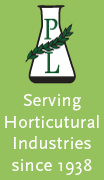Some untreated well waters, however, can have high levels of salts and bicarbonates. Over time, the accumulation of salts from irrigation water can impact the plant’s ability to uptake water and nutrients from the soil.
Plants vary in their ability to tolerate salt accumulation. Roses and bamboo are intolerant to high salt levels while rosemary and oleander are more tolerant.
Irrigating with alkaline water containing high levels of bicarbonates can increase soil alkalinity to undesirable ranges for some plants. Water with high levels of calcium and magnesium, commonly known as hard water, will leave unsightly white spots on plant leaves when used for overhead irrigation.
With advanced information, most soils can be managed to accommodate poor quality irrigation water. Some well water may also contain toxic levels of boron, sodium and chloride.
It is essential to know the chemical makeup of water that is used in fertigation (liquid fertilizer) programs. This information is used to create a balanced nutrient solution for the plants being grown. As the crops being grown age, they often require different nutrient schemes; however plant growth is dynamic and is best not left to a scripted fertility program.
Annual well water testing is also important in determining any water treatment that may be necessary for any pest control program. There are many chemicals that become inactive in a relatively short time when the water they are made with does not have the proper chemistry. It has been estimated that some insecticides lose half of their strength in less than one hour when made with alkaline water.
The increased use of recycling of irrigation water as a conservation measure and to reduce pollution from runoff, requires testing to determine possible management schemes. If a recycling program is used, constant monitoring provides information on making adjustments to balance fertility levels being supplied back to the plants. As adjustments are made, the constituents of the drainage water change and often require regular monitoring and changes in the fertilizer program.

424 Airport Boulevard
Watsonville CA 95076